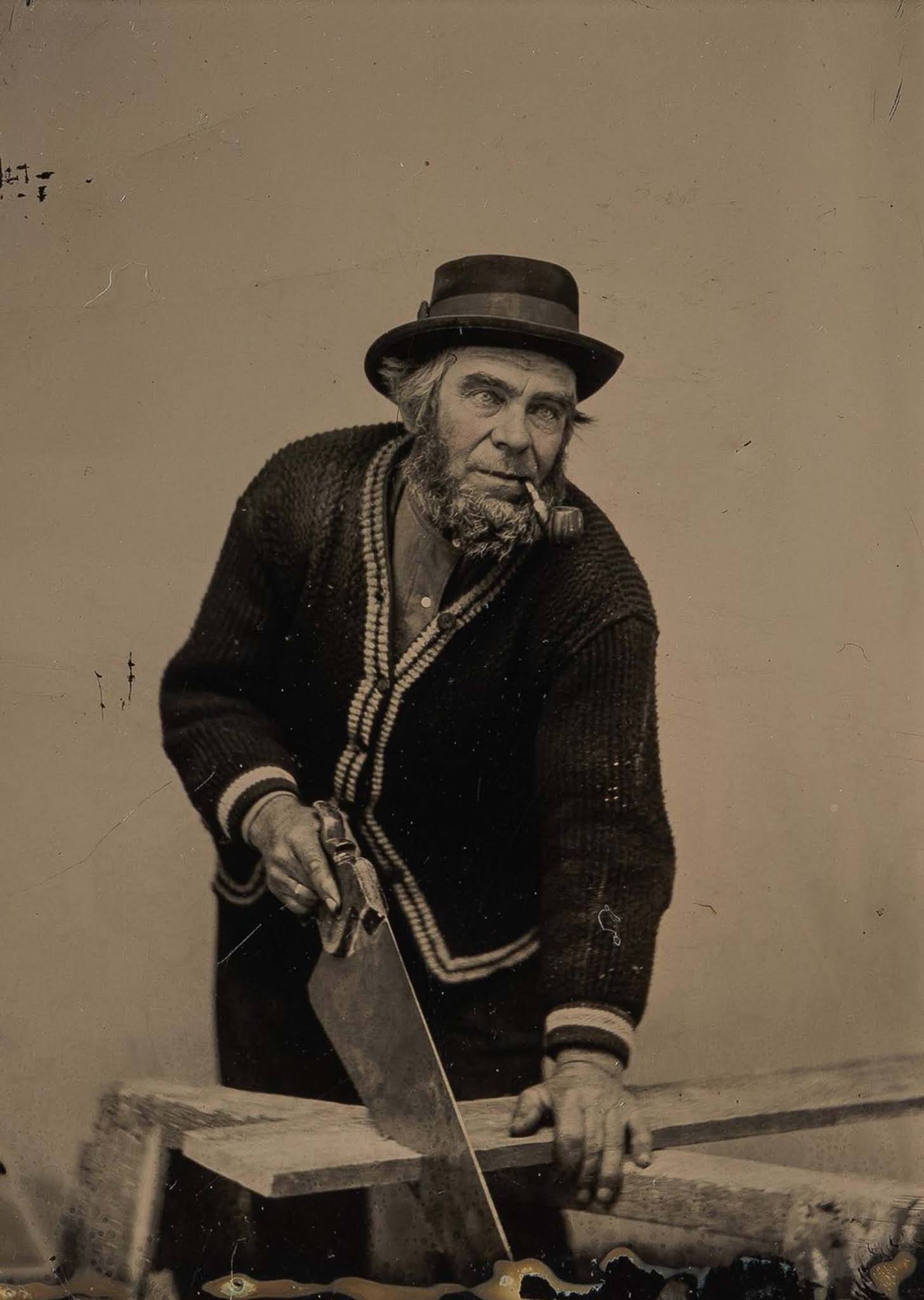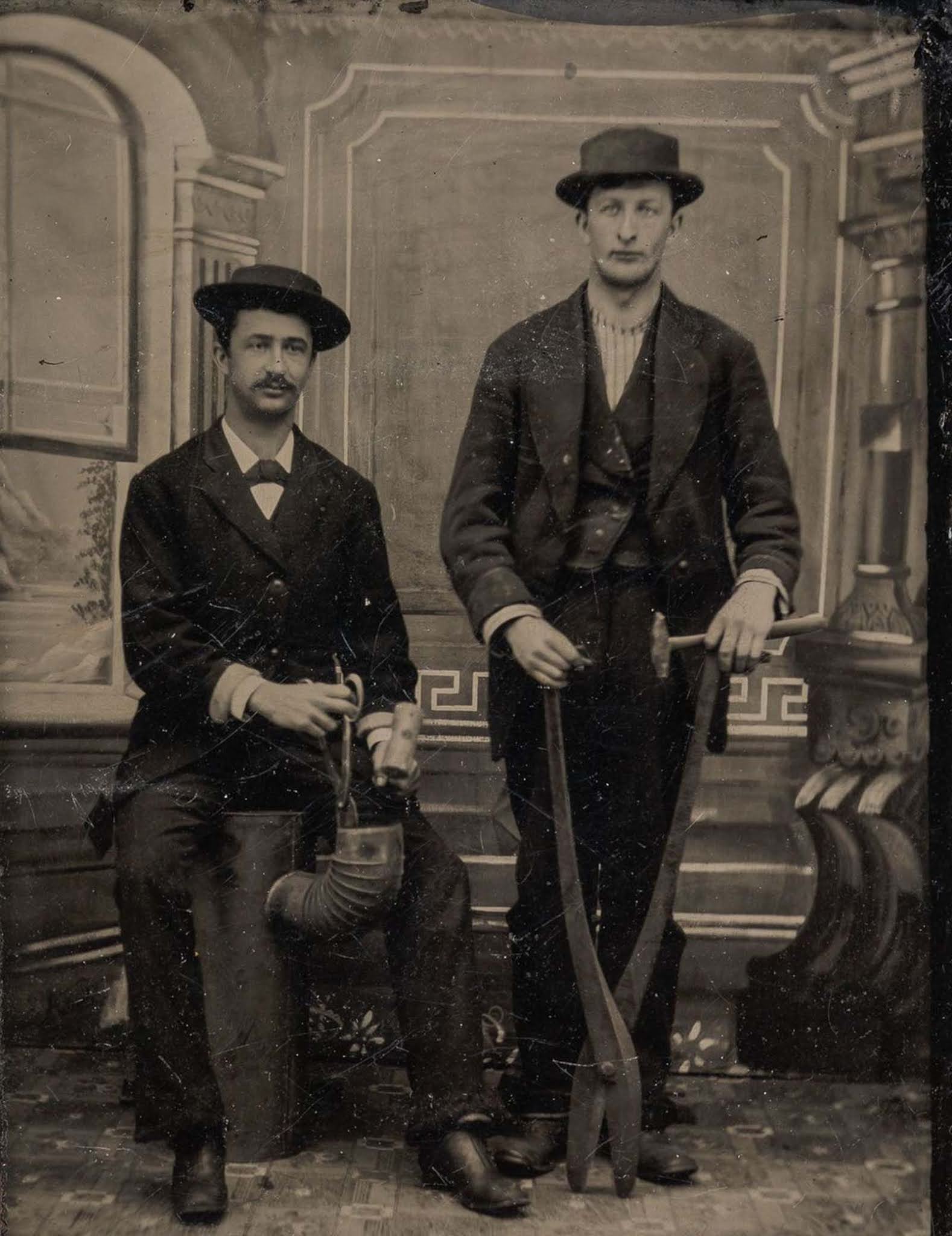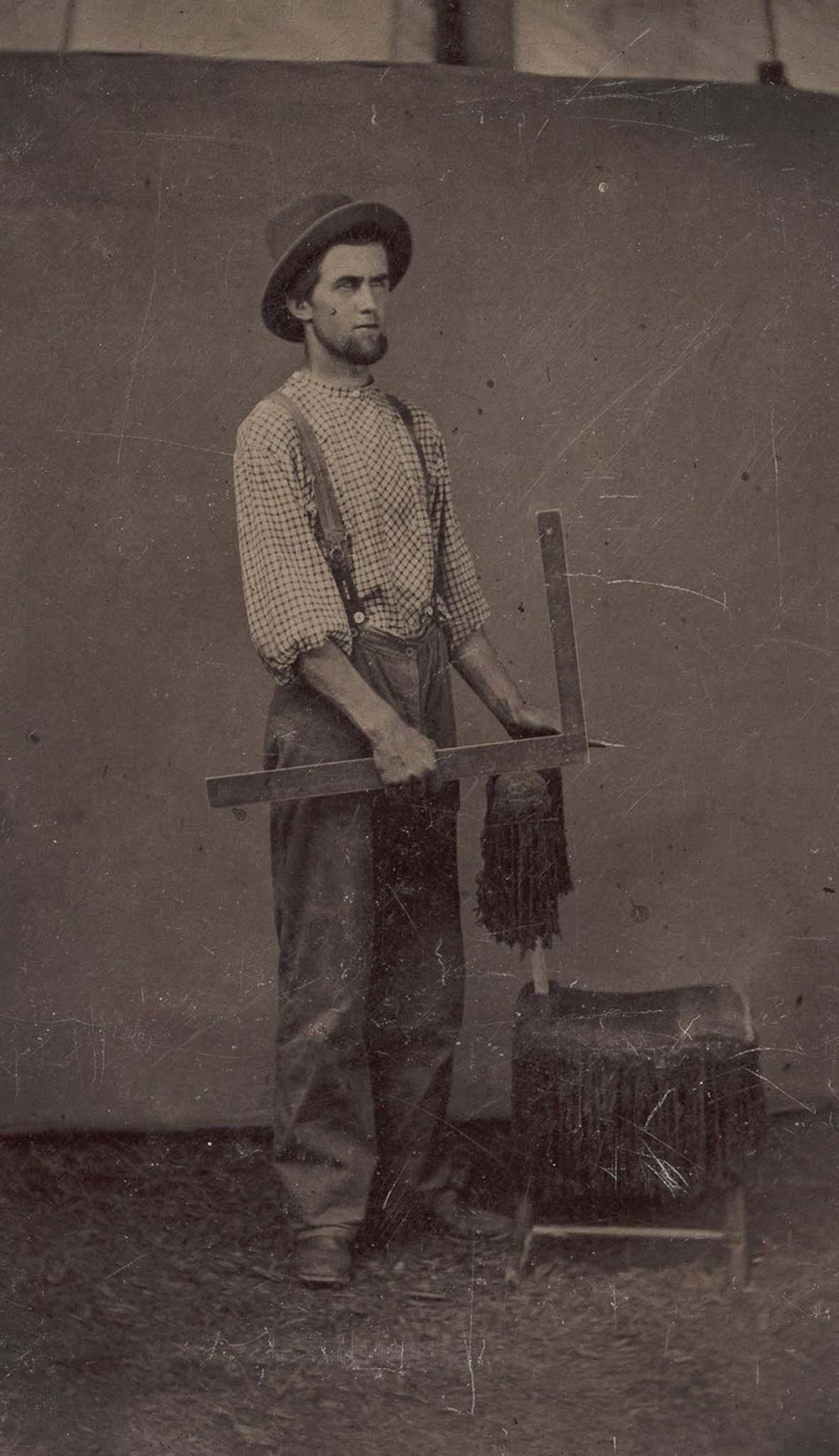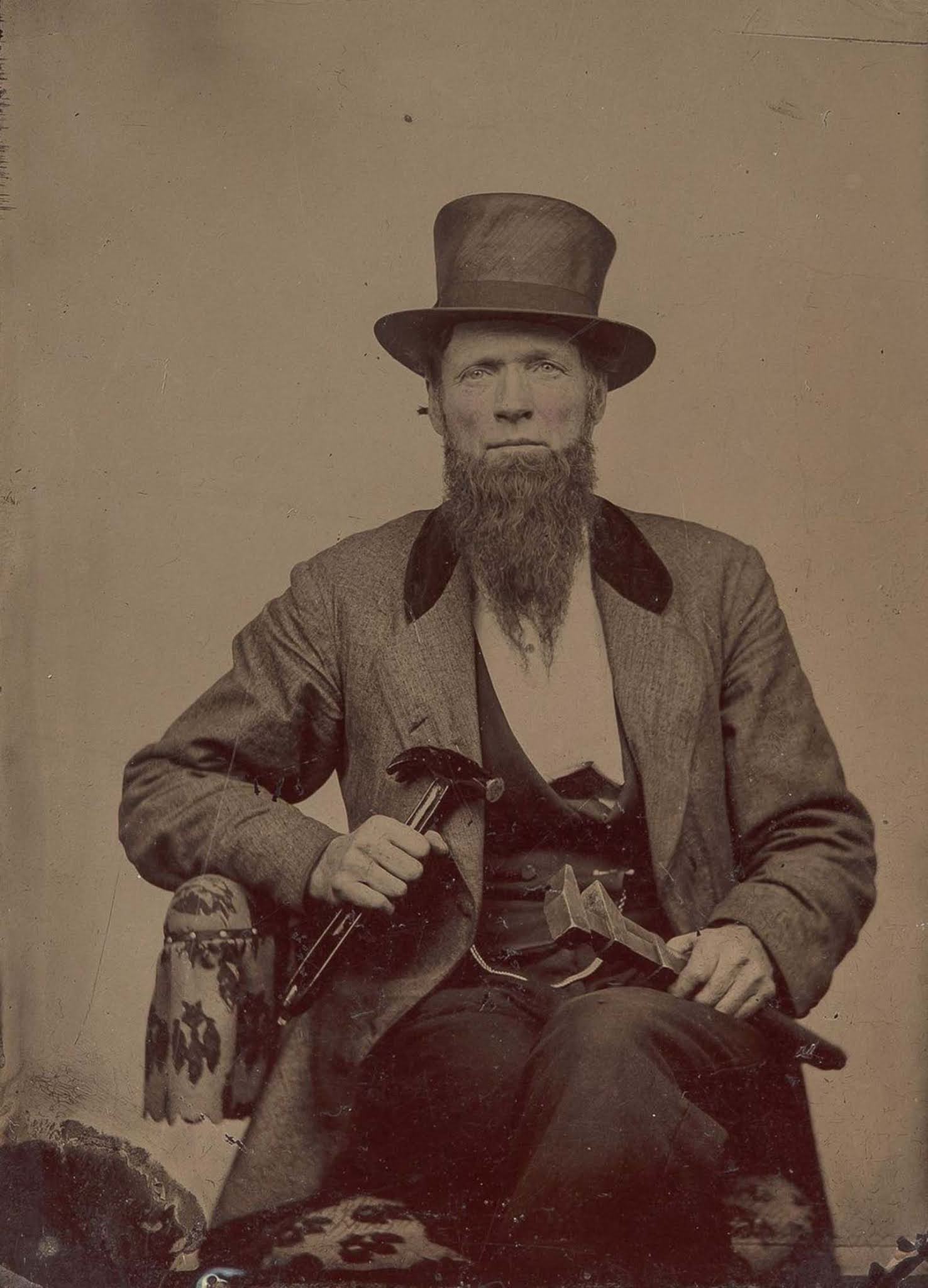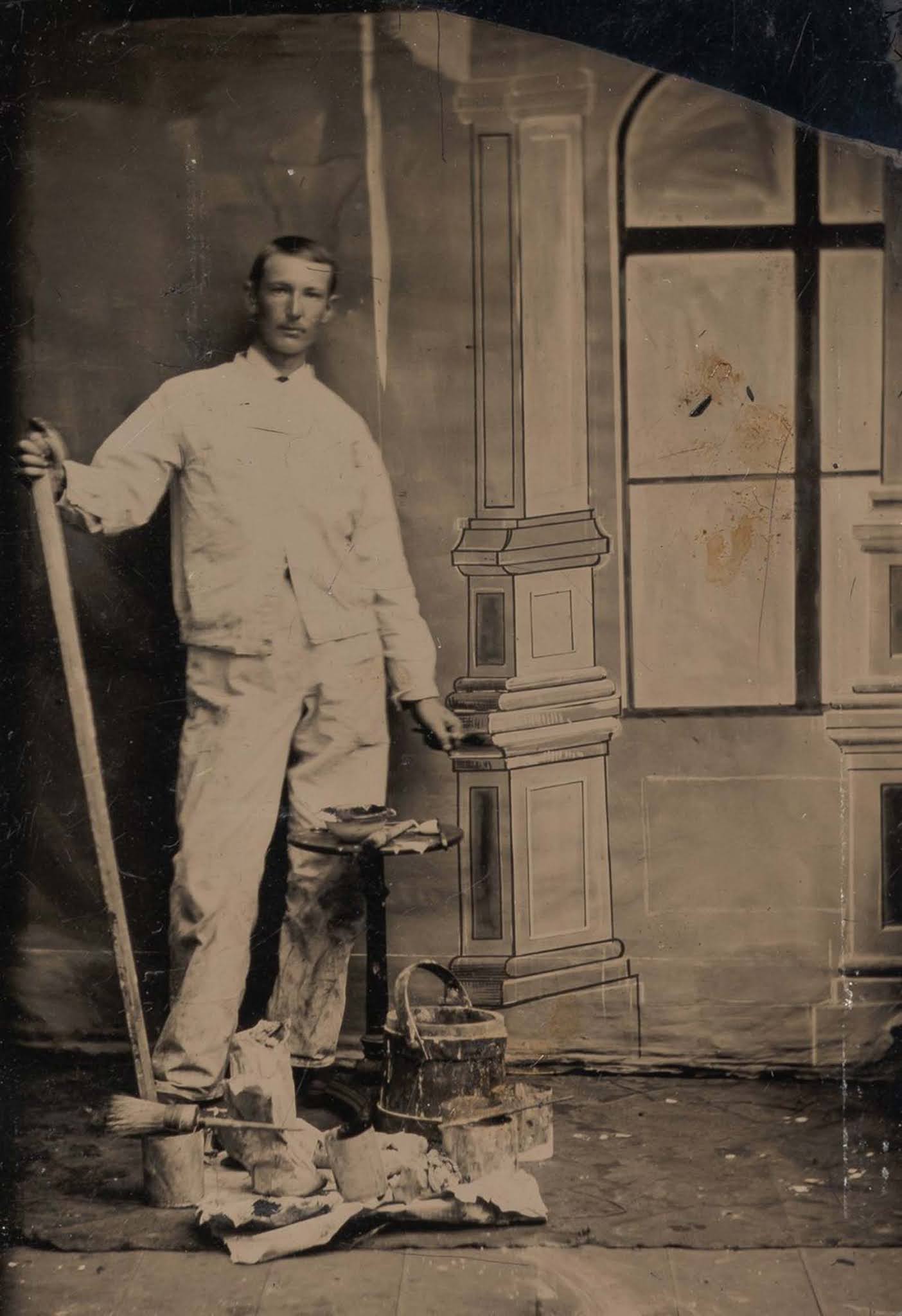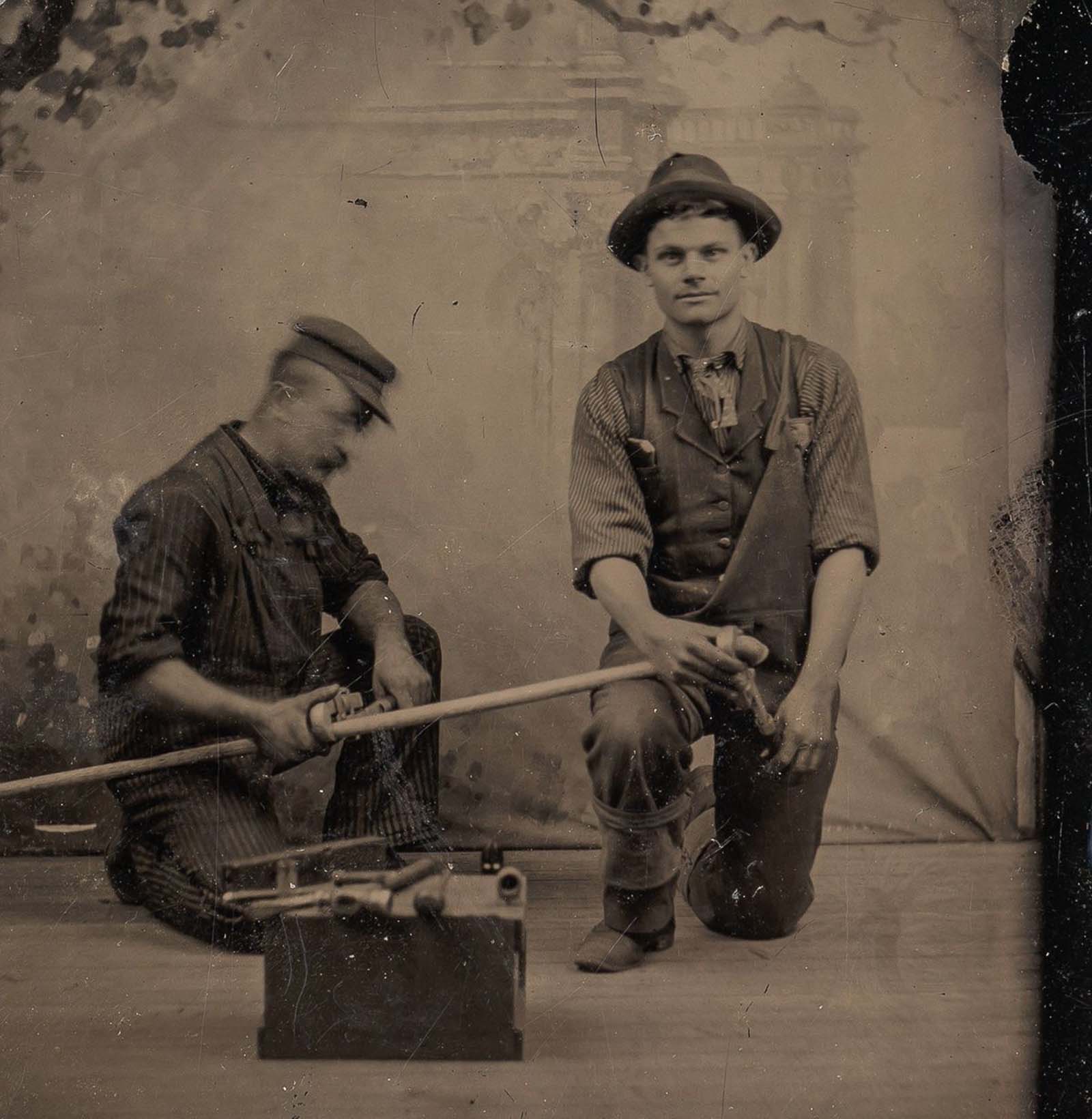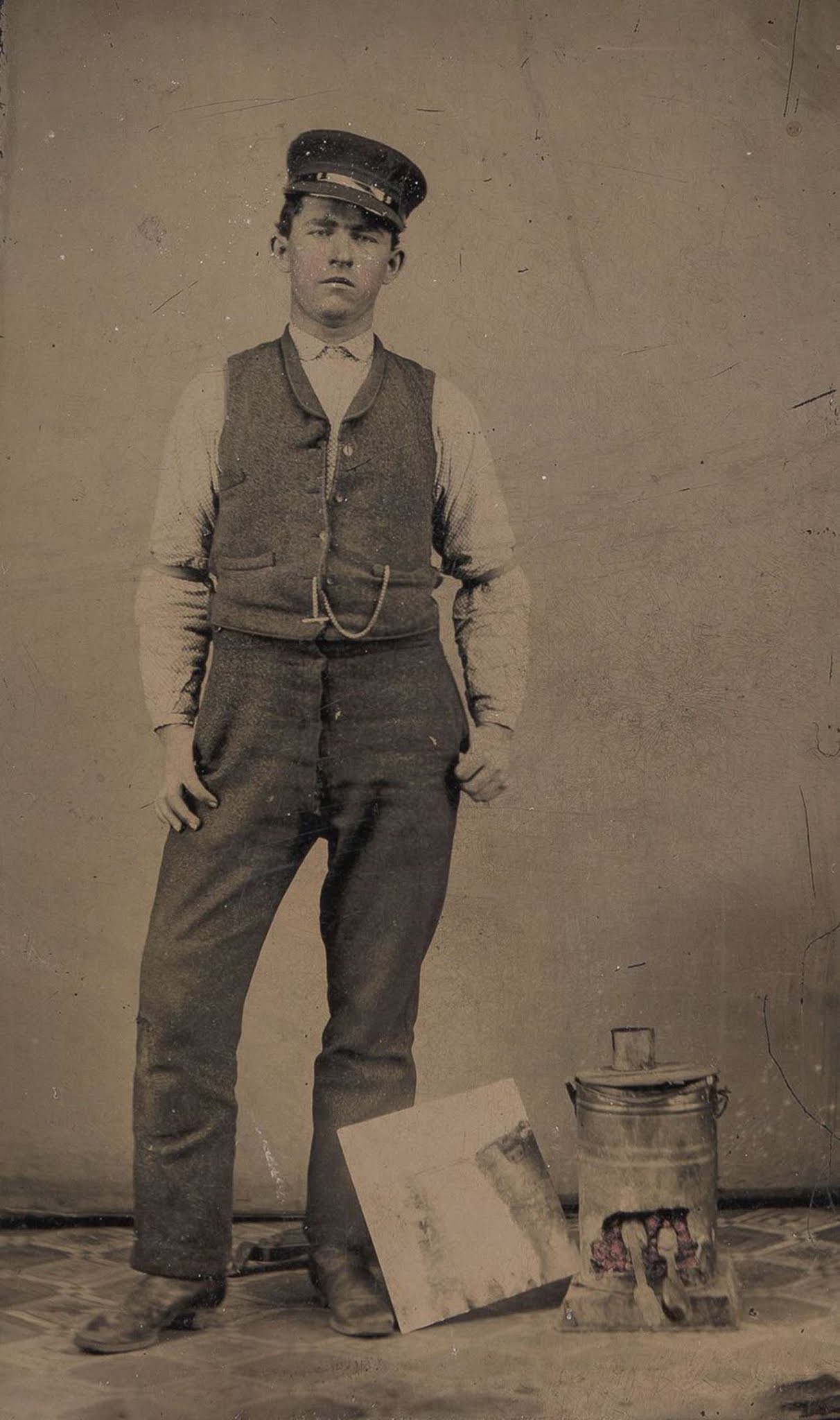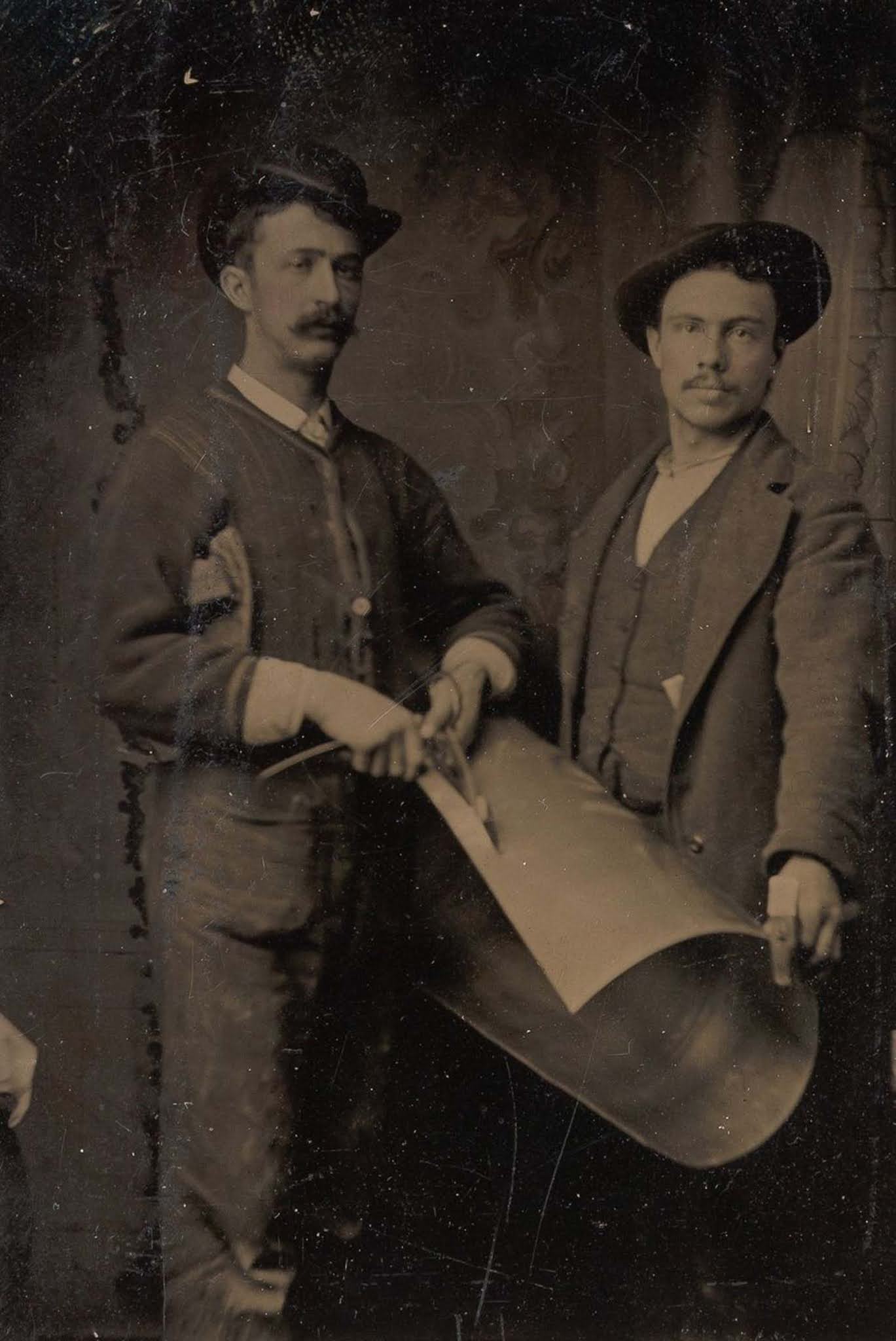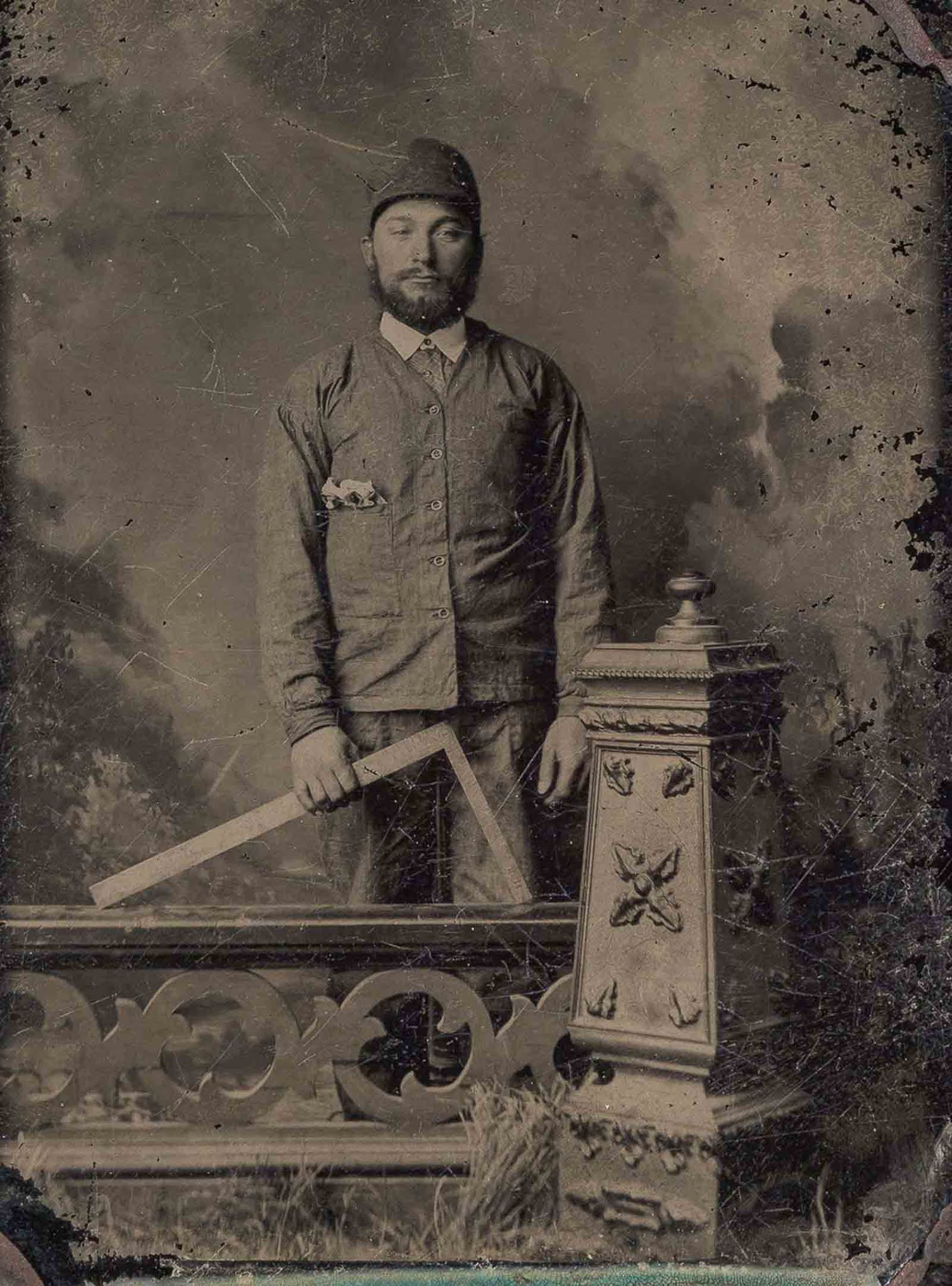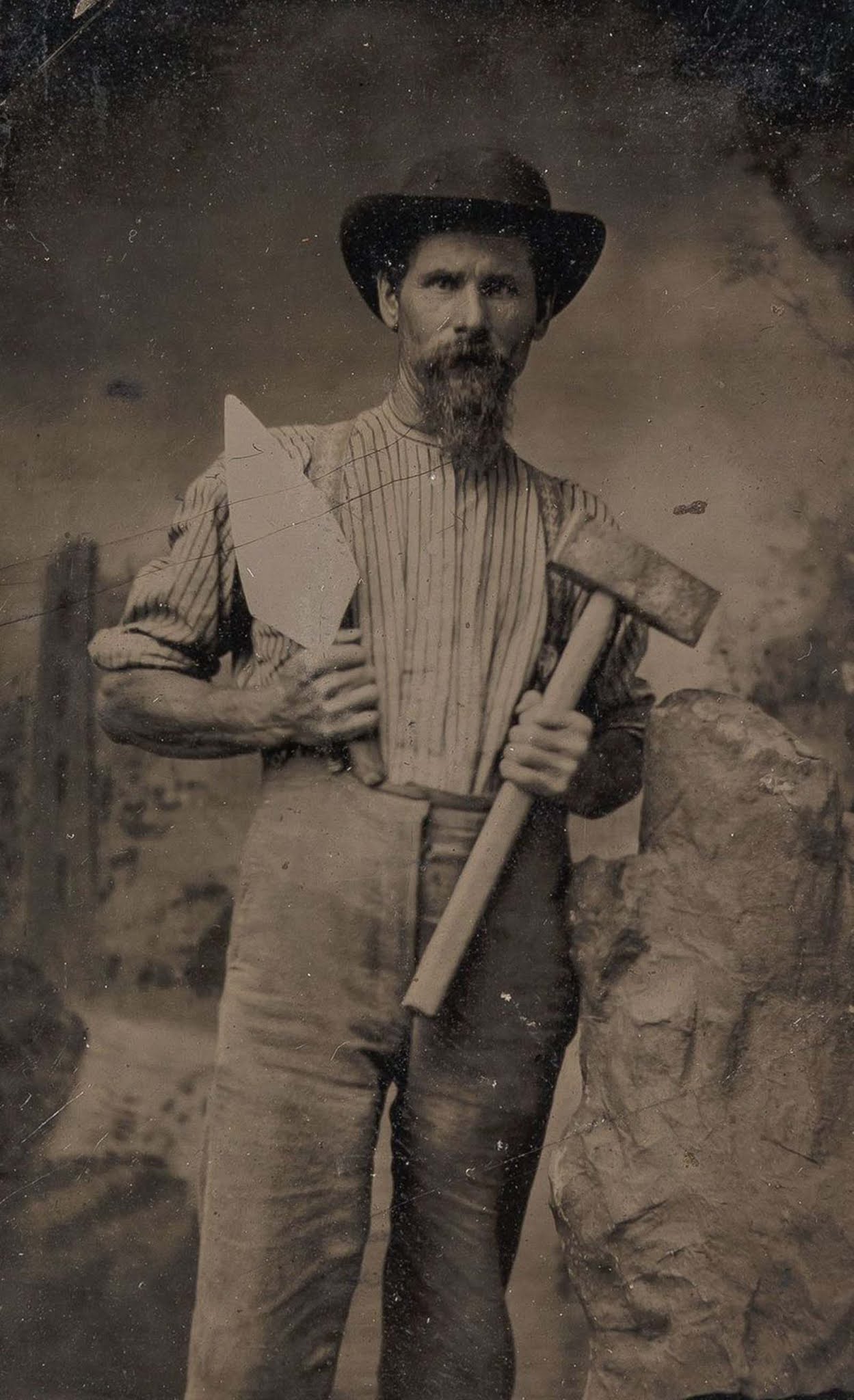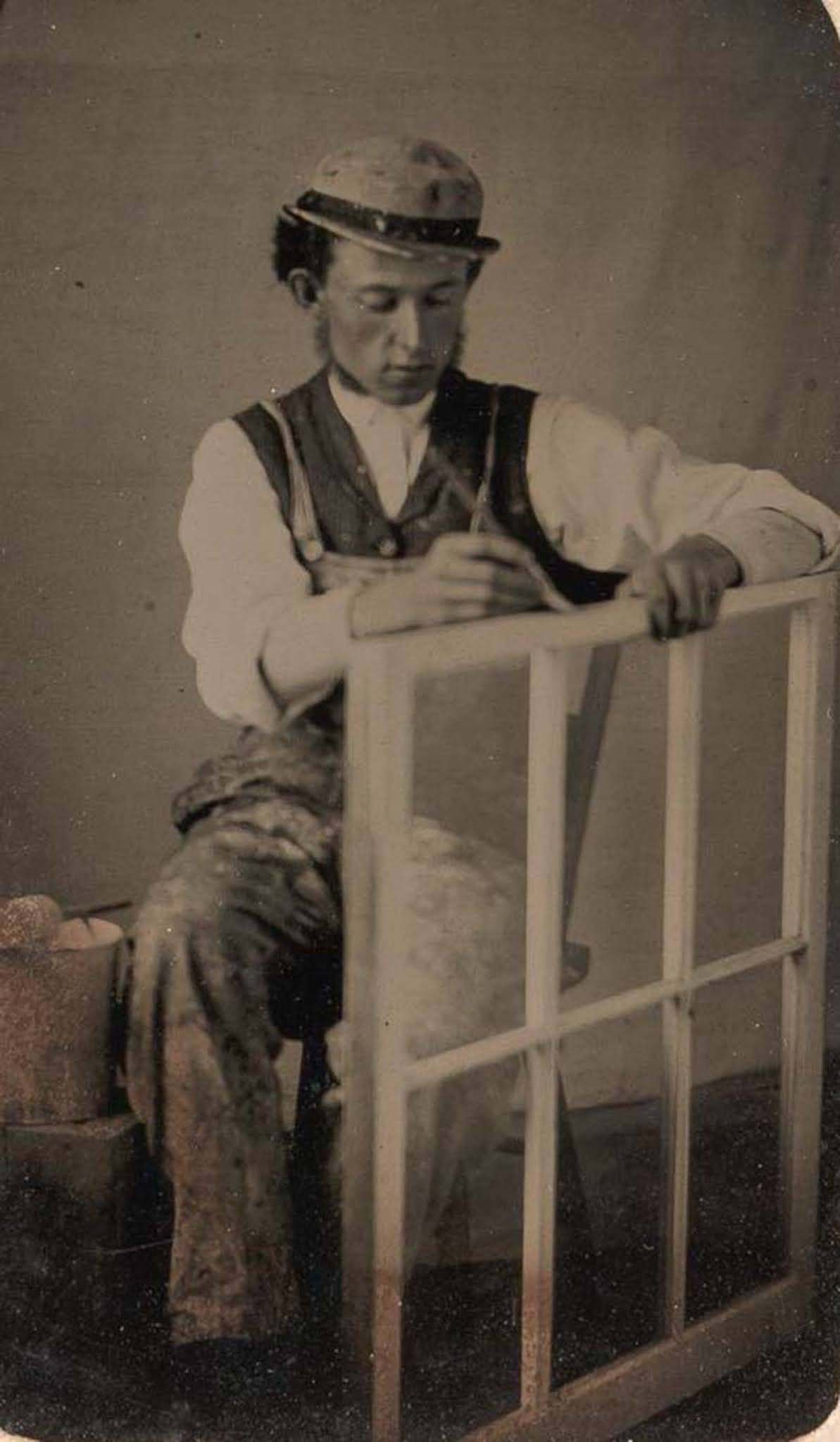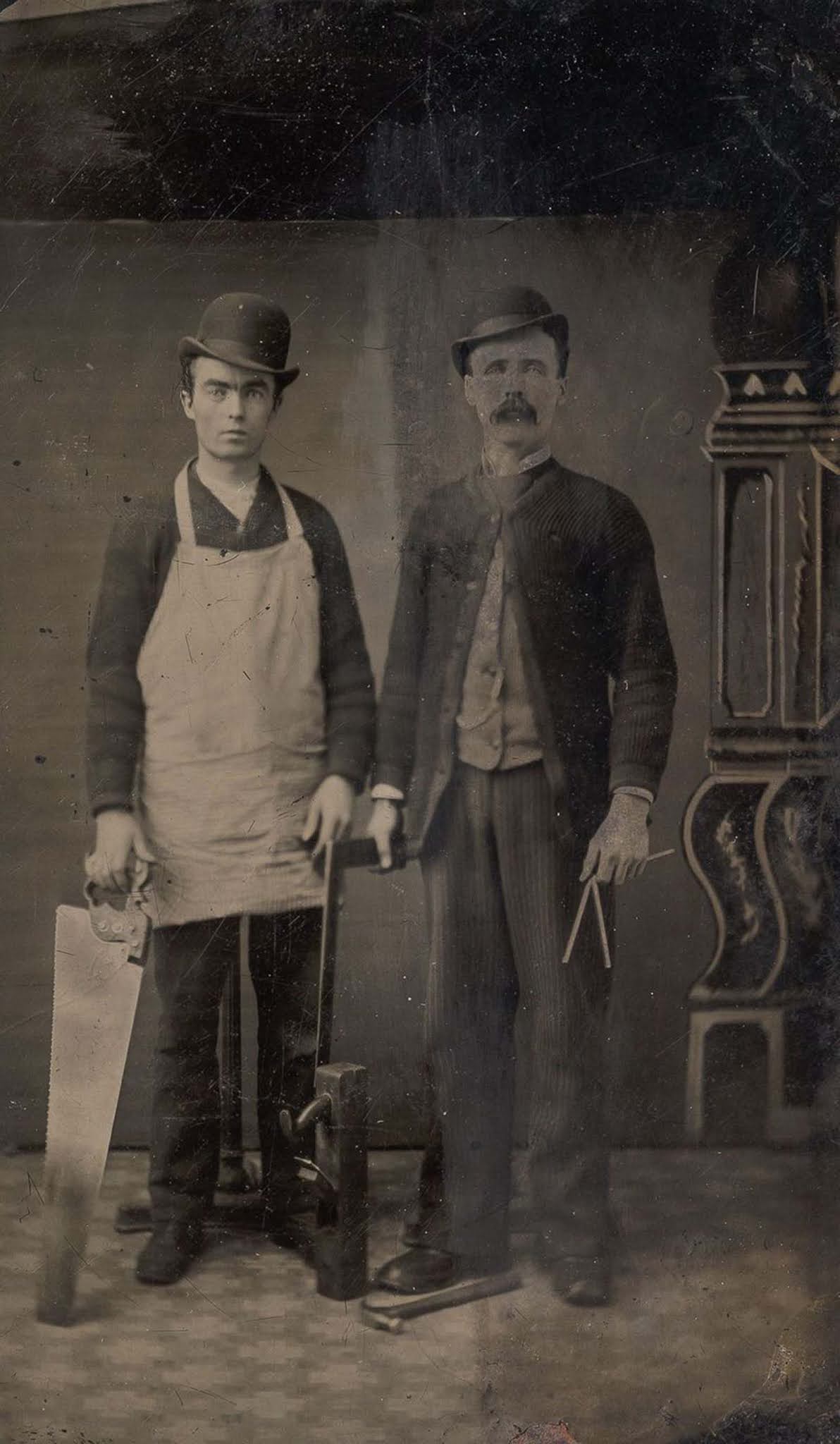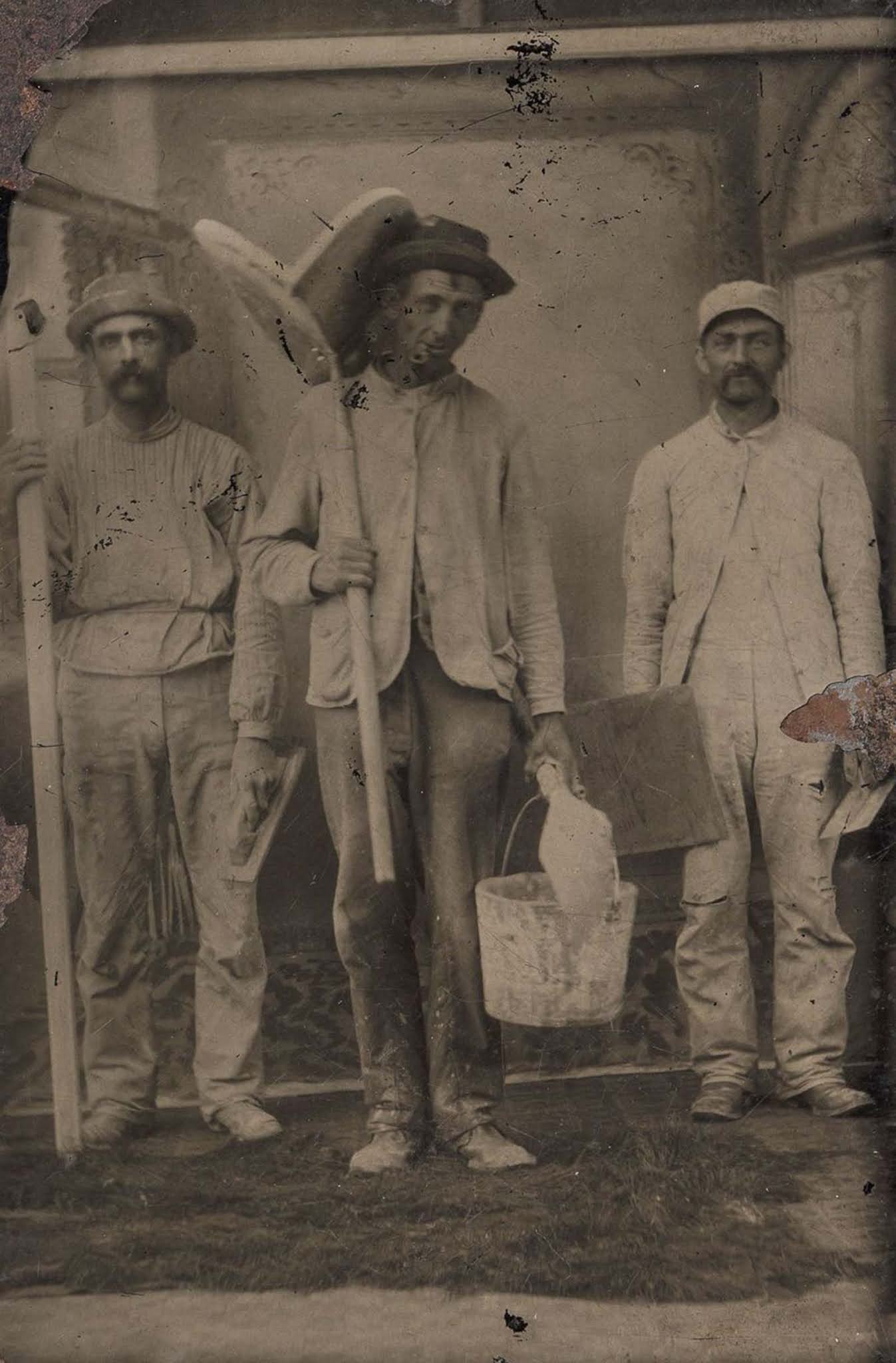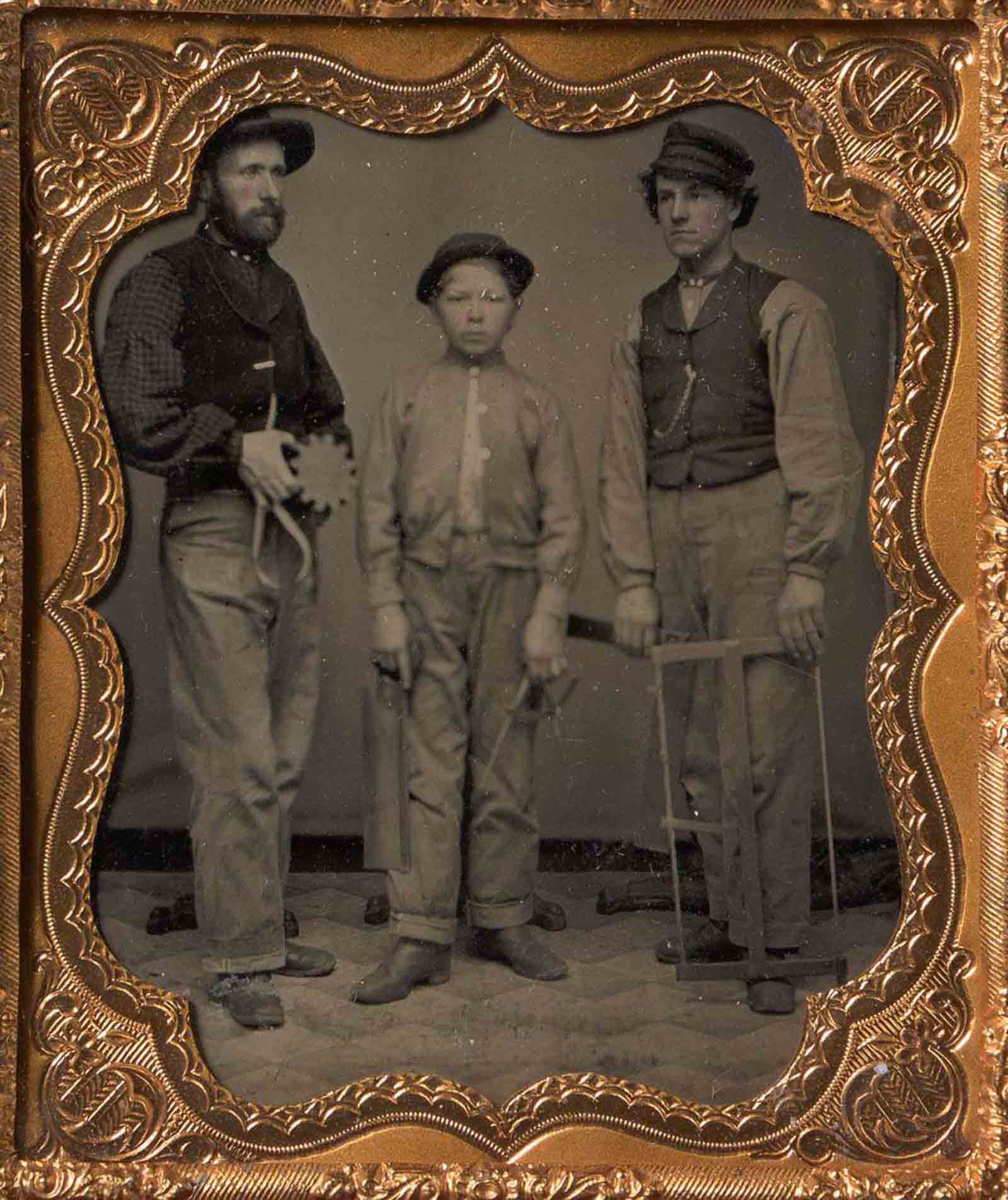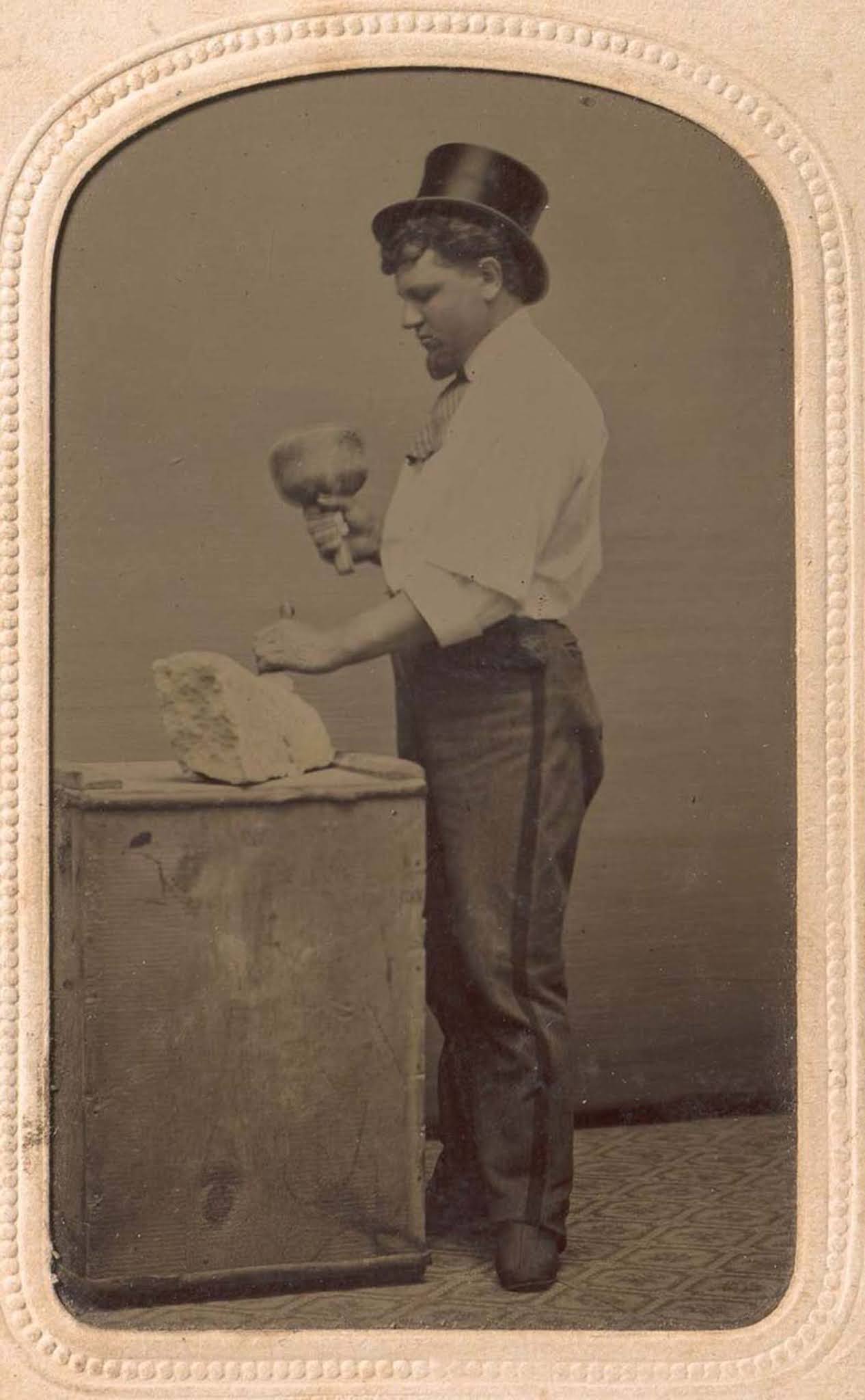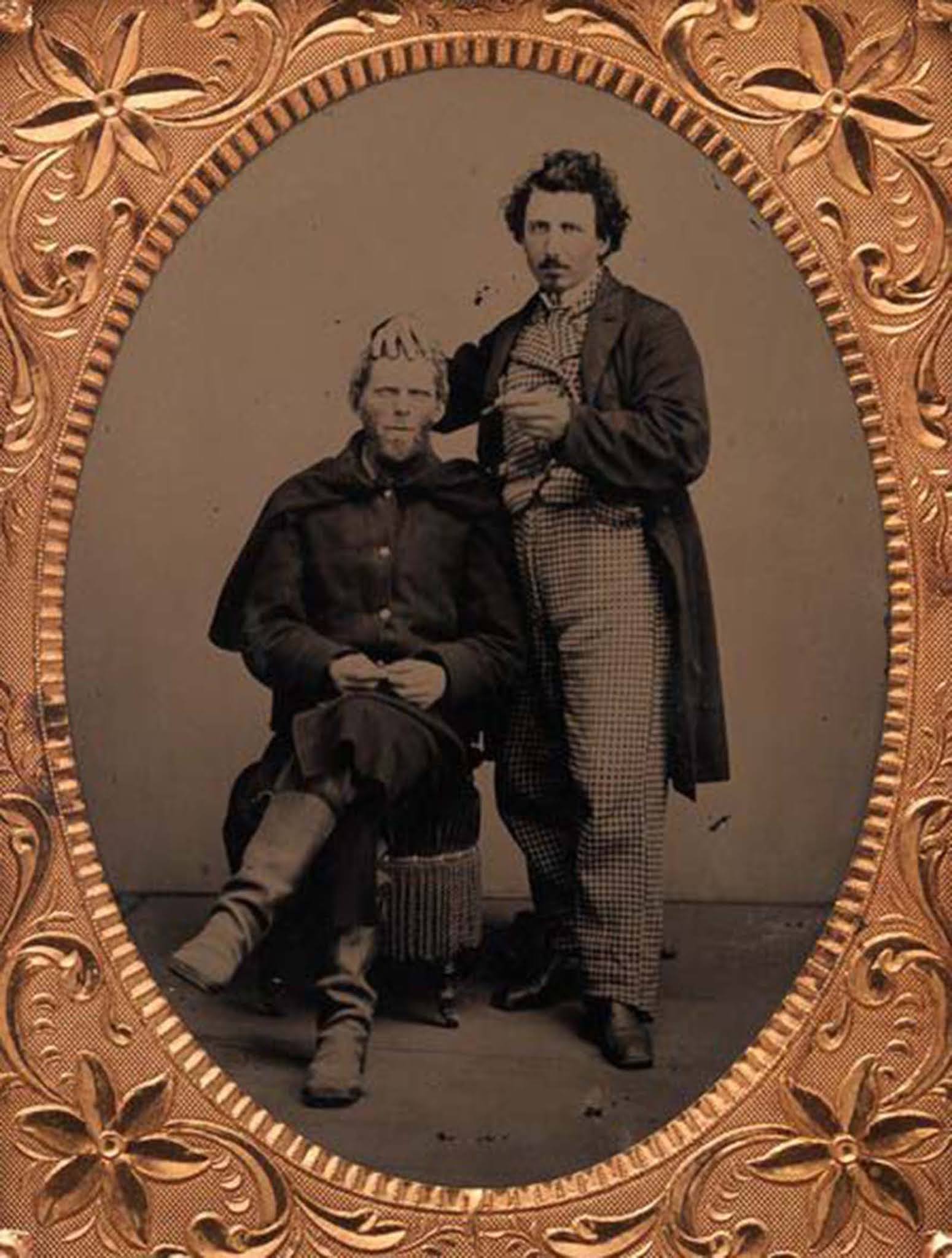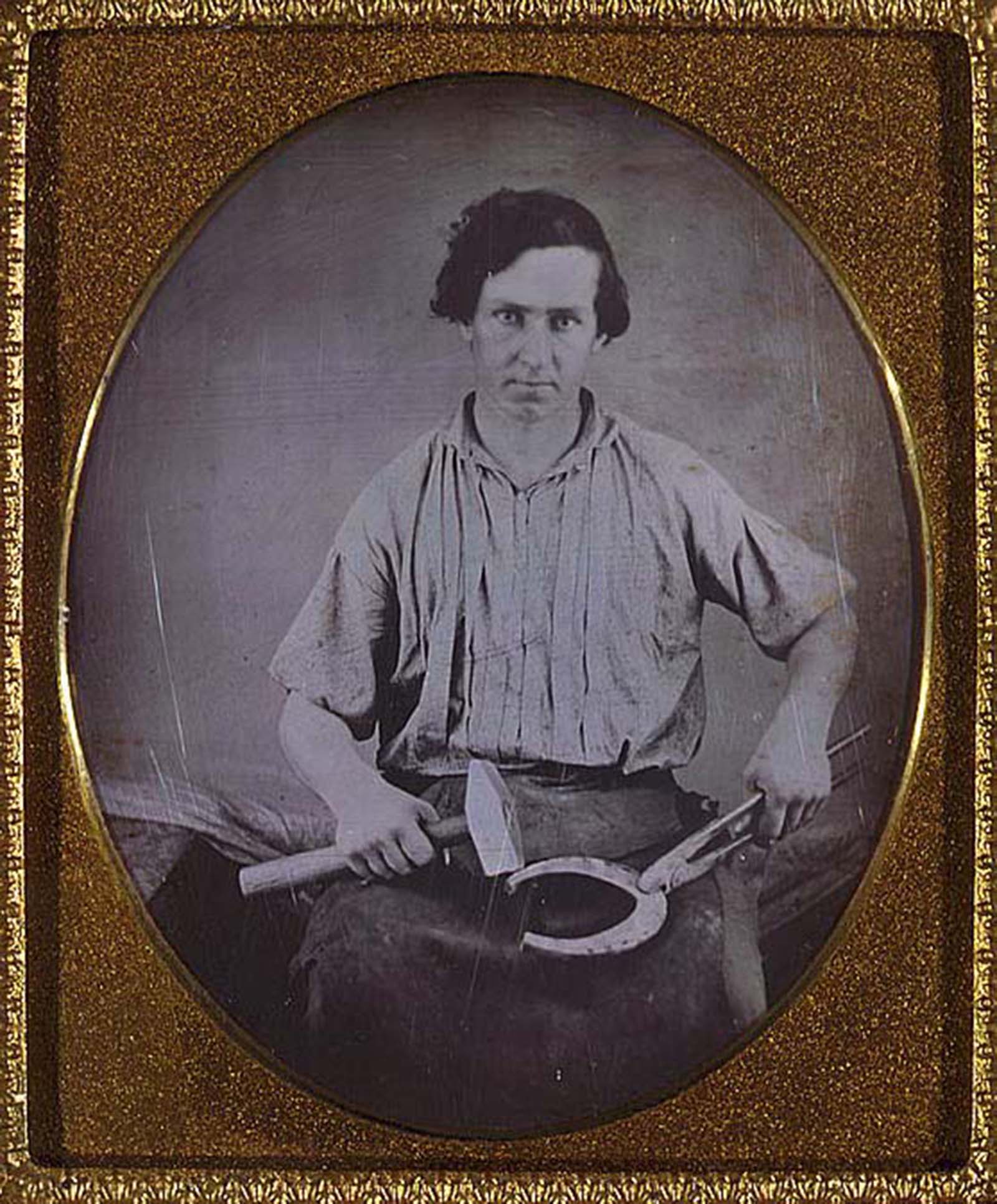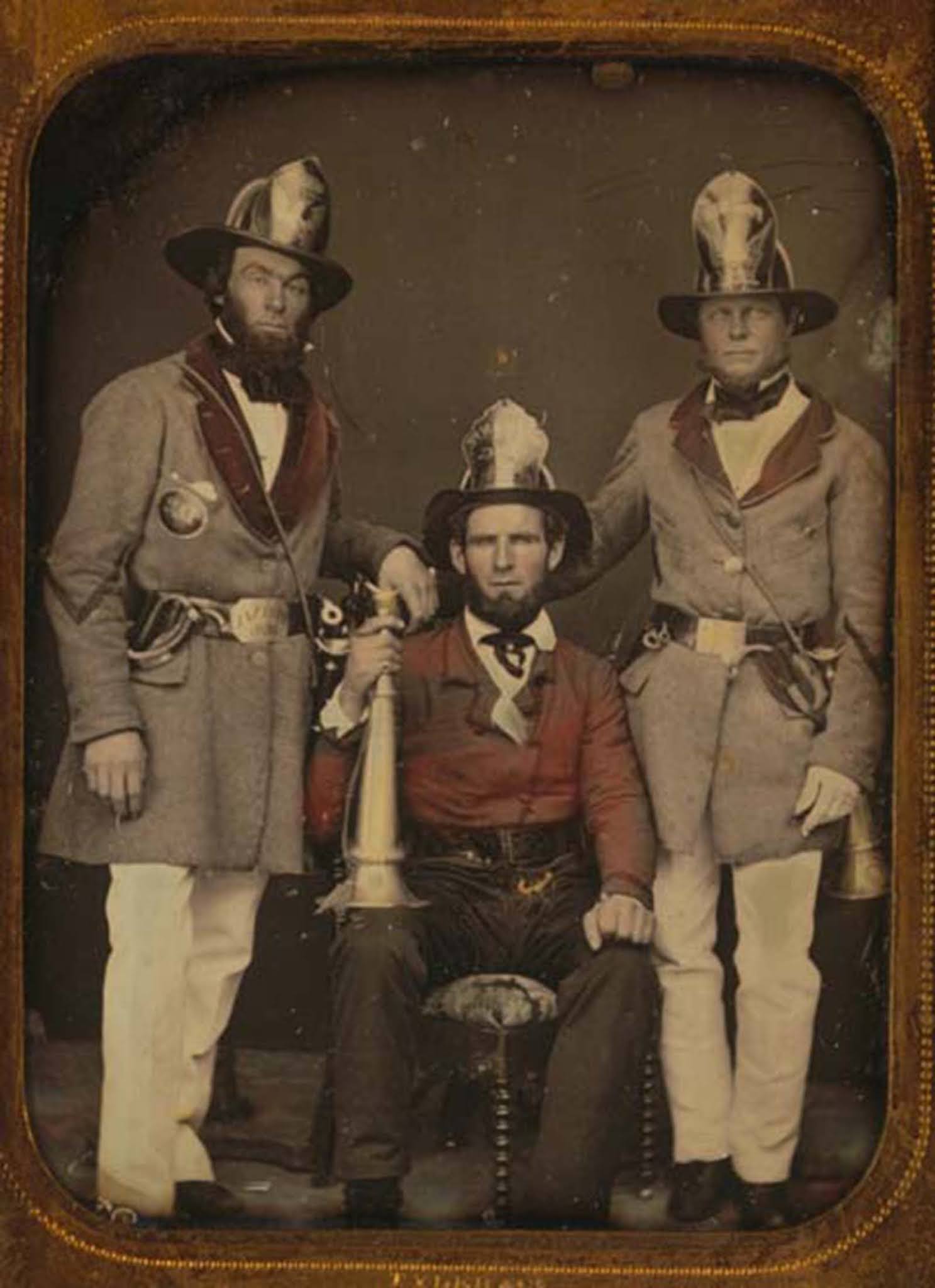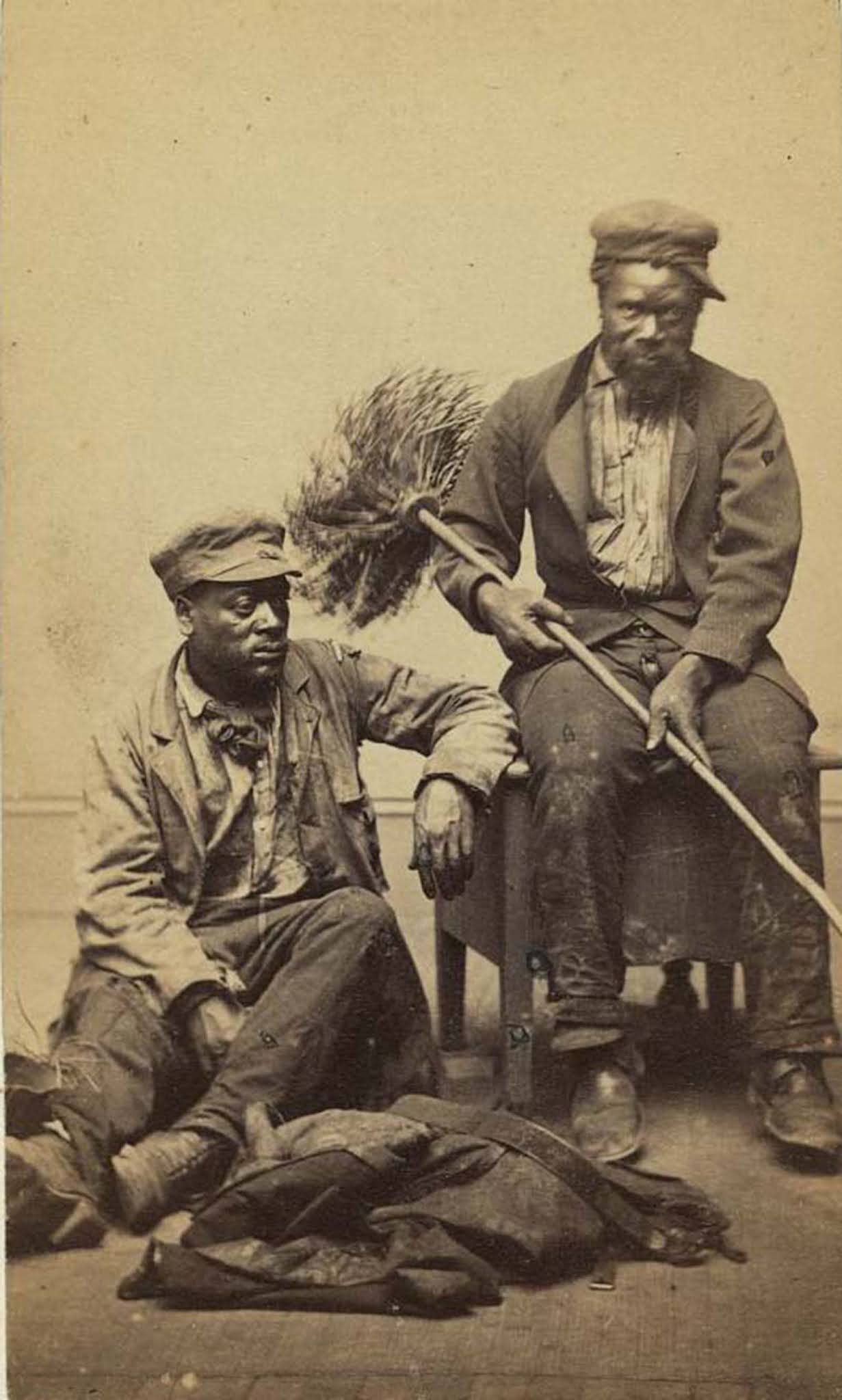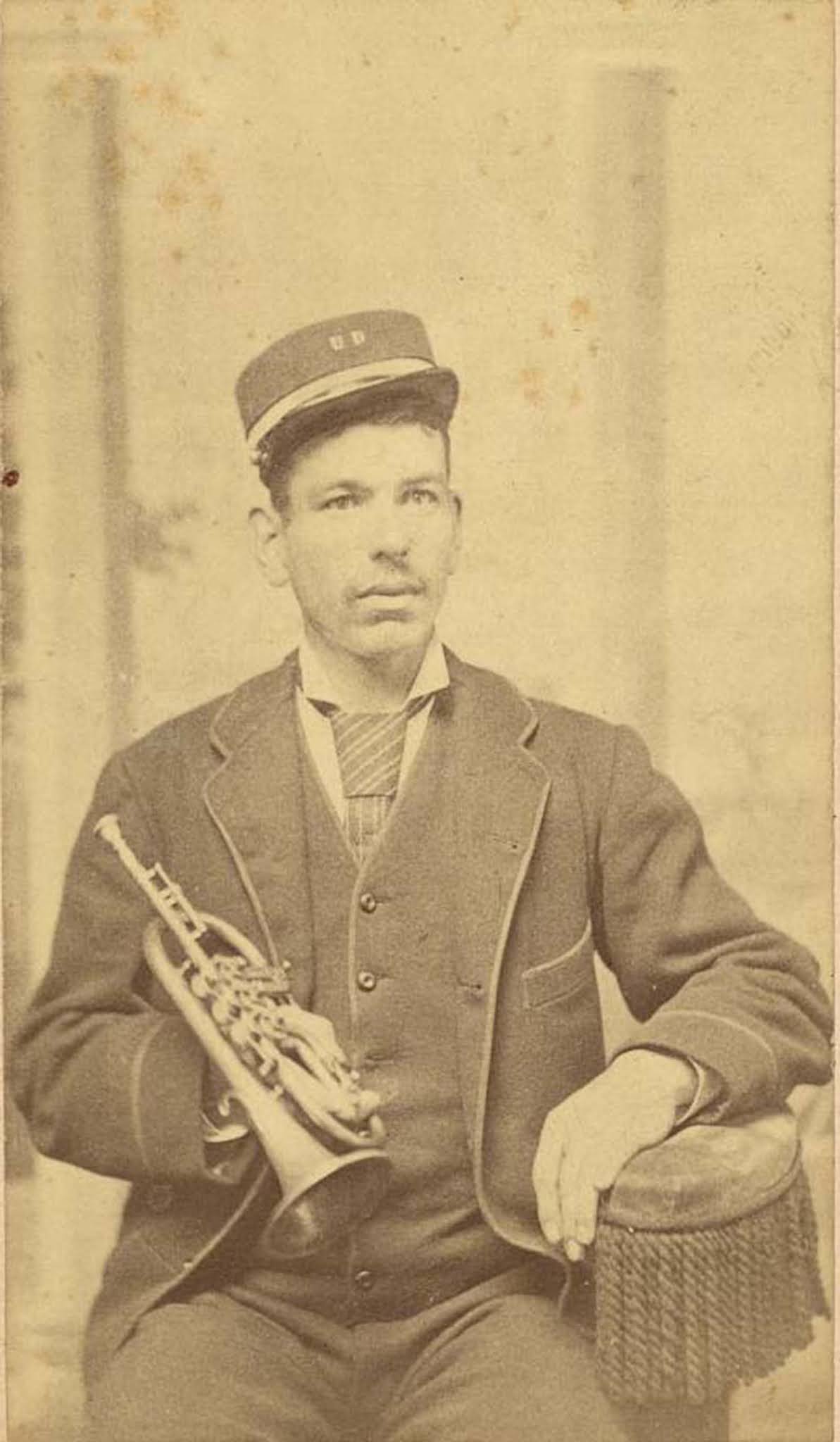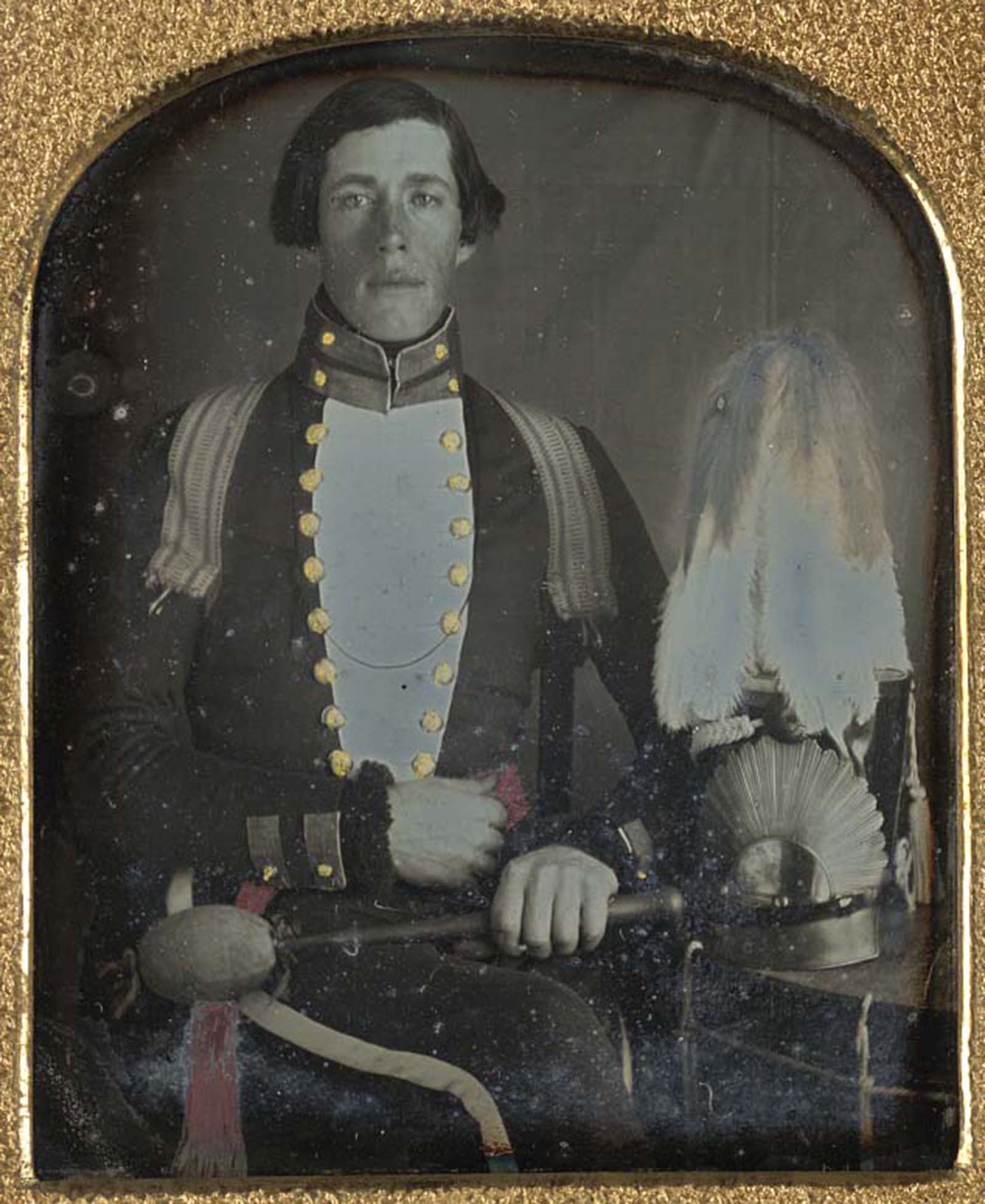The tintype, one of the earliest photographic processes, was often used for portrait photography. The photograph was made by creating a direct positive on a thin sheet of metal coated with a dark lacquer or enamel and used as the support for the photographic emulsion. Tintype portraits were at first usually made in a formal photographic studio, like daguerreotypes and other early types of photographs, but later they were most commonly made by photographers working in booths or the open air at fairs and carnivals, as well as by itinerant sidewalk photographers. Because the lacquered iron support (there is no actual tin used) was resilient and did not need drying, a tintype could be developed and fixed and handed to the customer only a few minutes after the picture had been taken. In other words, the tintype was a cheap, fast, easy-to-make, practically indestructible type of photograph that became enormously popular among the working class. For common laborers and their families, the opportunity to join the ranks of those who owned pictures of family and friends, the upper classes, was momentous. The subjects of the portrait photographs collected in this article are plumbers proudly holding their wrenches and pipe cutters, carpenters with their saws and lathing hatchets, textile workers with their spindles and yarn, icemen with their tongs. These people lived and worked at a time when a depersonalized factory system run by production and efficiency experts was beginning to dominate the American industry and culture. Many of the men and women in these tintypes were part of a disappearing class of self-employed artisans and journeymen; their portraits proudly stress their individuality and the essential nobility of their work. The tintype began losing artistic and commercial ground to higher quality albumen prints on paper in the mid-1860s, yet survived for over another 40 years, living mostly as a carnival novelty. (Photo credit: Metropolitan Museum of Art / Bequest of Herbert Mitchell / Library of Congress). Notify me of new posts by email.
Δ Subscribe
